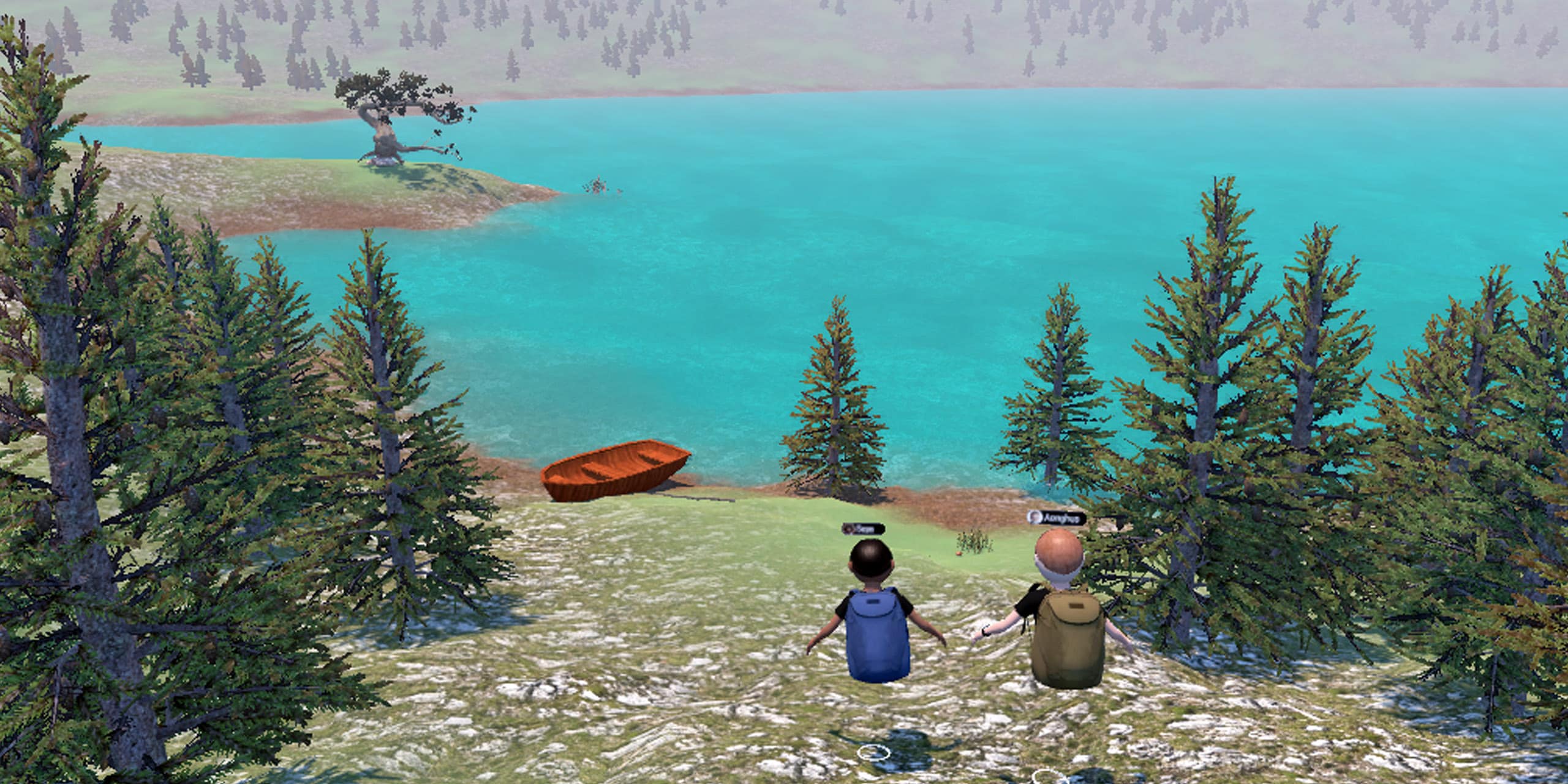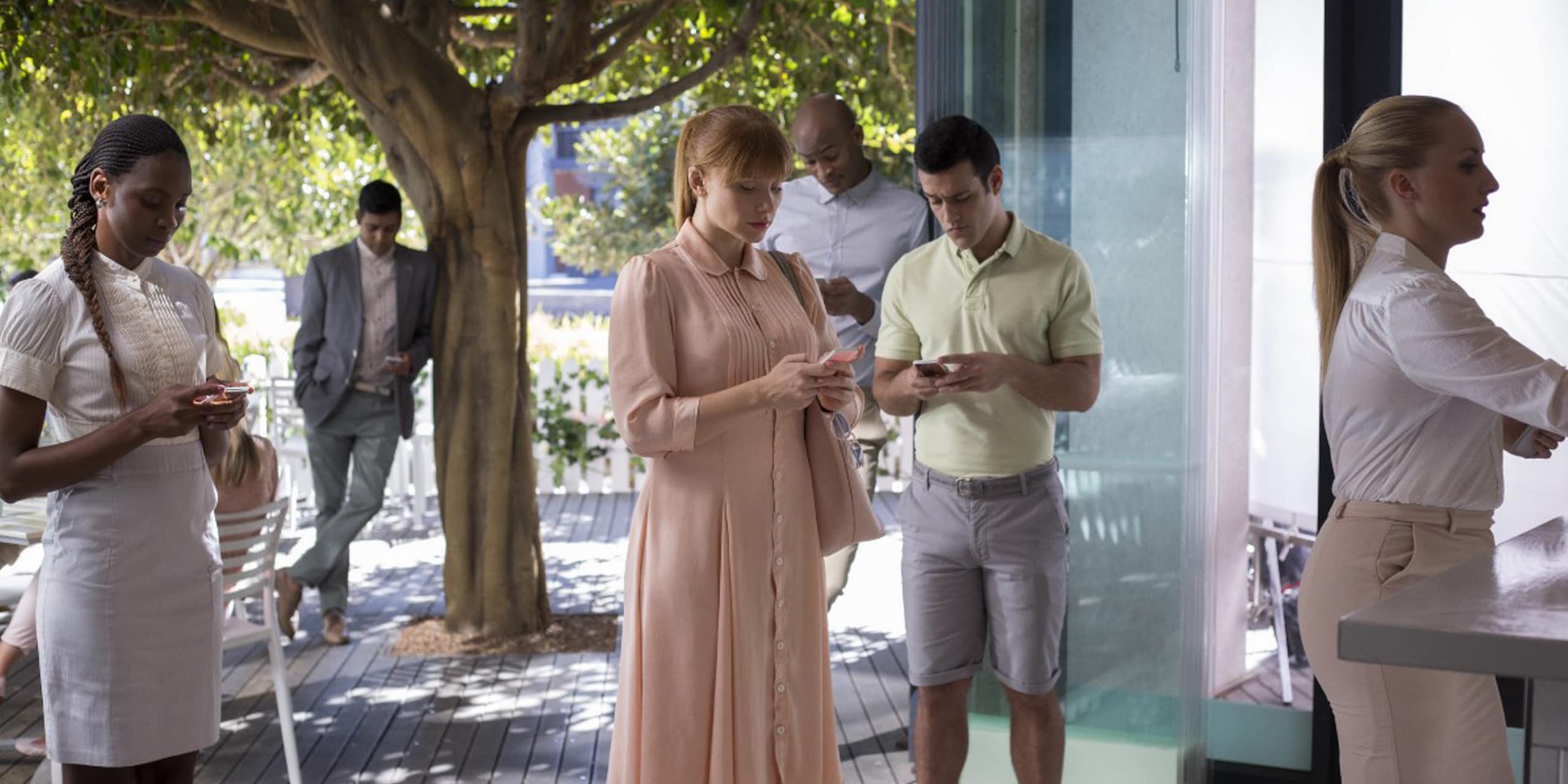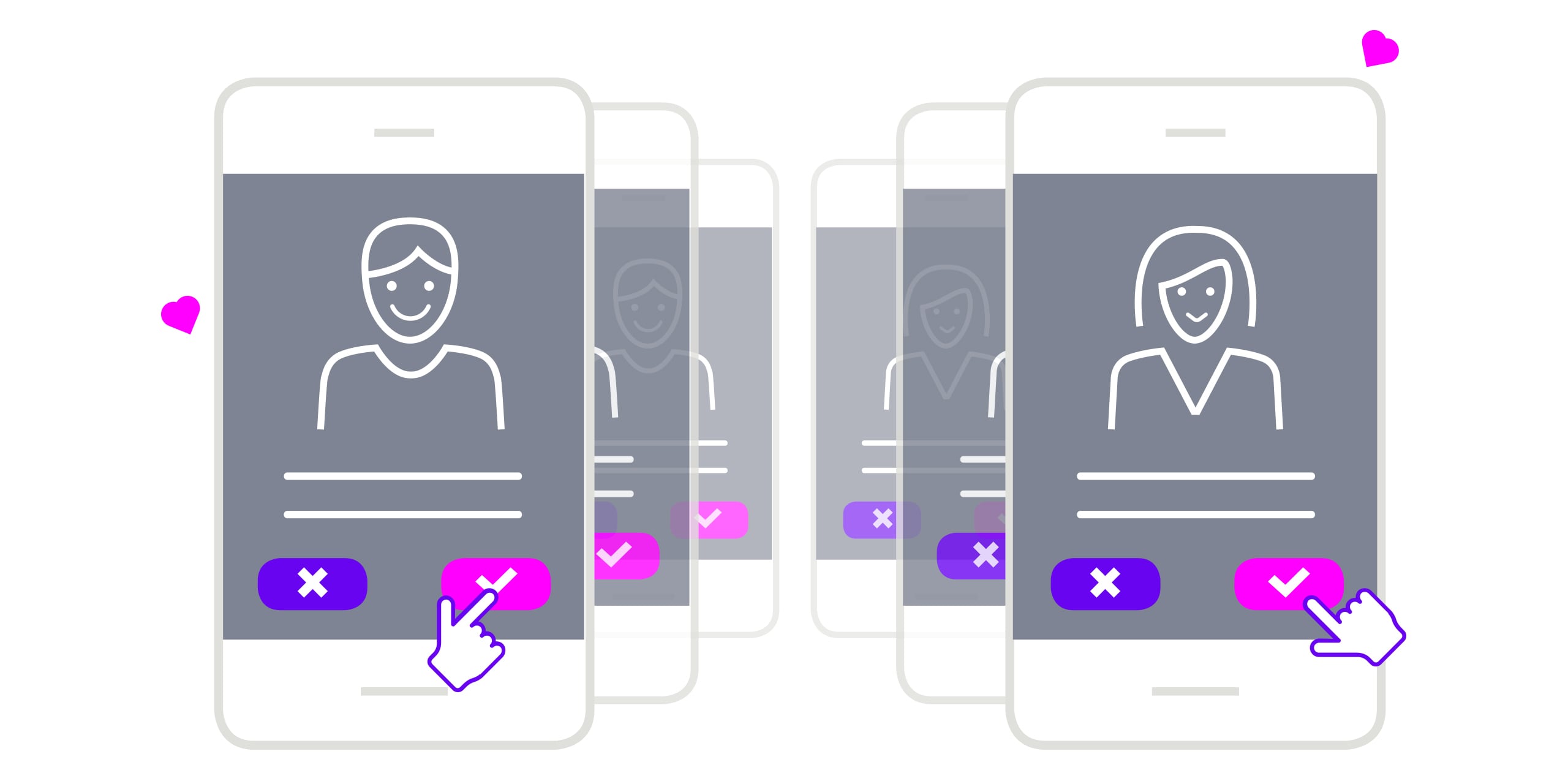Why Technology Will Keep Us Together
Why Technology Will Keep Us Together
Put down your pen and open your mind! Technology has changed the way we communicate — and the latest advances look set to make us more sociable than ever

Would you hang out with your best friend in a virtual world?
It’s hard to remember a time before social media — but try. Remember sending snail mail to pen pals? Or paging your friends, then waiting for them to call you back on the landline because the mobile phone had yet to be invented?
While the retro way of communicating has a certain charm, nothing beats the technological thrill of organising a school reunion via group chat, or video calling loved ones living on the other side of the world. You have to admit: what a difference a few short years make!
Technology has helped us get closer, quicker. But social media as we know it today is just the tip of the iceberg. The future of social promises to bring us together faster than ever before, and in ways far beyond our current modes of communication.
Making Social More Social
A huge bet tech giants like Facebook are making in this regard is the marriage of social media and virtual reality (VR). The firm’s founder Mark Zuckerberg envisions its 1.7 billion (and growing) users taking 360-degree photographs, sharing them on their feed and inviting friends to visit these places by creating virtual avatars that resemble them. What cooler way to amp up the social aspect of social media?
As Zuckerberg explains, “Imagine sharing not just moments with your friends online, but entire experiences and adventures.” Getting involved, not merely sharing, is how technology will bring us closer.
Watch Facebook’s exciting vision of social media in the future
In the near future, technology will intuitively help us become more sociable. Enter US-based television network NBCUniversal, which is developing a hybrid TV/VR experience to enhance the immersive experience of live shows. Imagine tuning in to a live broadcast of your favourite TV show in a virtual world, then engaging with other fans after the credits roll. Or getting up-close with your favourite celebs. Fans of the Formula One Singapore Grand Prix, for example, could experience the race through a VR set in the comfort of their own homes, then hang out virtually with race kings Nico Rosberg and Lewis Hamilton after.
Technology may have a bad reputation for making us unsociable, but using it in this way turns the passive viewer to active participant, further widening our social connections without the need for us to be physically present.
Building New Worlds
Although VR has yet to take off among the masses, British start-up Improbable is already preparing for the future — one that is made of huge and seamless virtual realities.
“When people talk about VR, they are usually thinking about the headsets and other hardware that create the interface,” Improbable founder Herman Narula tells T-Digital. “However, we believe that the quality of the worlds that people interact with is vital to the long-term success of VR.”
SpatialOS, Improbable’s VR platform, allows developers to create enormous, highly detailed virtual environments. The big idea: more interactive and immersive virtual environments will make the world a closer and more intimate place for us all.
Hear from the man himself why this will change our lives:
Watch why Improbable wants you to meet friends and forge relationships in a virtual world
But not everything about the future of social is all fun and games. Sometimes, work gets in the way. It is in this arena that Microsoft is making headway, combining work with play. The tech giant is working on integrating its revolutionary HoloLens, a holographic computer headset, with Minecraft, the popular block-building video game, to make workplace collaborations a more social affair. Discover their amazing work here:
Watch Microsoft’s impressive showcase of HoloLens
Let’s Get Together
So, will technology bring us closer or drive us further apart?

Characters in a social media-obsessed world in “Nosedive”, the first episode of Black Mirror Series 3
For a pessimistic view, look no further than the hit television series Black Mirror, which often paints a dystopian future where technology creates conflict. The premise of one particular episode, “The Entire History of You”, shows how humans recall everything they have ever done, seen or heard via an implant. However, instead of using this ability to replay precious moments, the characters end up replaying disagreements.
Improbable’s Narula has a more optimistic view of the future. “Similar questions have been asked about social networks like Facebook, and before that about message boards — and even telephones,” he says. “Every new technology opens up new possibilities. We believe that they ultimately enhance the richness of our lives and relationships, even as they change them.”
So imagine a future where social media will essentially become natural extensions of us — part of the clothes we wear, the gadgets we use, our very selves. One where cutting-edge innovations like VR will play a transformative role across varying industries — from live entertainment and sports to tourism and business meetings.
For better or worse (sensory overload, anyone?), it is ultimately up to us as individuals to choose how we harness the connective possibilities of technology. If all else fails, there’s always snail mail.
Disclaimer: Improbable is a Temasek portfolio company.

Read our infographic on the future of dating to find out how technology is changing even the way we date and fall in love


